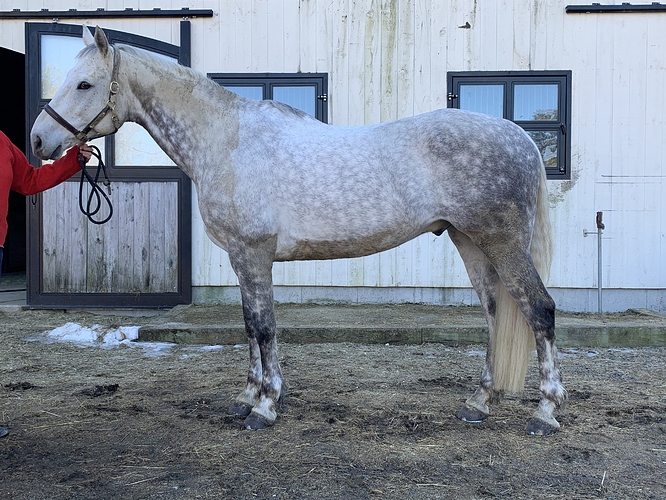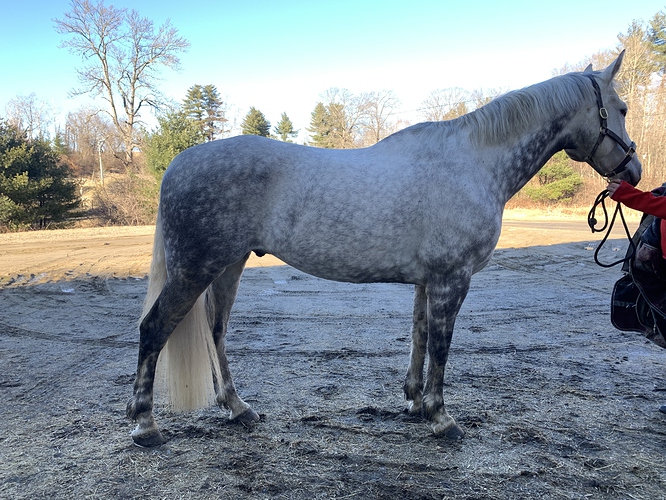UPDATE AT THE BOTTOM OF THE THREAD
I am starting this as an off shoot of a previous thread about the struggles I have been having with my horse Middleton.
Our full background is on that thread and context for this issue as well but things have changed and I don’t want to stay swamped in that older one.
I haven’t been riding him hard and is in light work. Since I bought him, he has lost weight and muscle and isn’t putting it back on. I also recently moved to a new barn. Since moving, his symptoms have gotten worse. After not bucking at all from May when I bought him through December, when we moved to the new barn. Moving should have meant that he improved, it was a far better situation, however he has bucked more frequently under saddle since moving then he has before. He has also started bucking on the lunge, which he never did, and he is incredibly weak and has very little muscle and basically no topline.
One month ago we had a vet out, she did an evaluation and he was neurologically questionable. His inflammation numbers were high and she said that treating EPM would make the most sense as false negatives are fairly common and if horses he was around are now also being diagnosed, it makes sense. Two weeks after the treatment started, my trainer rode him. I don’t have a saddle at the moment, so I can’t ride much. He seriously let one loose and almost bucked her off. About week 2-3 on the Marquis for EPM, my trainer was very insistent that we inject him. We went ahead and did so. Now week 4/ the end of the Marquis, I was lunging him the other day and he was dragging one back toe, he wasn’t picking it up fully and the toe dragged.
I am very concerned because he should be better, not worse, technically. I am just very concerned with what I see, someone else mentioned it could be scoliosis or Kissing Spine, I just would appreciate any similar experiences or insight. I love this horse with everything, and it breaks my heart that he isn’t ok.


